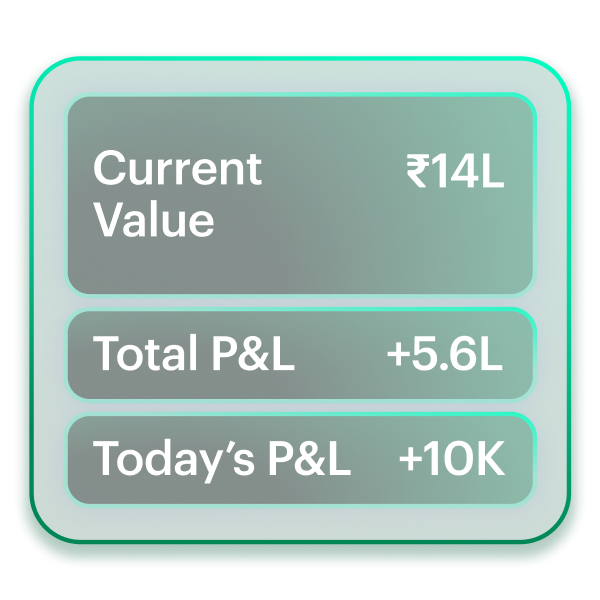Last Updated on Jan 25, 2024 by Harshit Singh
In India, out of the 365 days in a year, there are several holidays. However, when it comes to the stock market, there are only a few trading holidays. All days of the week, except Saturdays and Sundays, are considered business days in the stock market, with trading and investing taking place from Monday to Friday. However, there may be trading holidays announced in advance by the exchanges. Here’s the list of trading holidays for NSE in 2024.
Table of Contents
List of Trading Holidays for NSE (2024)
| Share Market Holiday 2024 | Date | Day |
| Republic Day | 26th January 2024 | Friday |
| Mahashivratri | 8th March 2024 | Friday |
| Holi | 25th March 2024 | Monday |
| Good Friday | 29th March 2024 | Friday |
| Id-Ul-Fitr (Ramadan Eid) | 11th April 2024 | Thursday |
| Shri Ram Navmi | 17th April 2024 | Wednesday |
| Maharashtra Day | 1st May 2024 | Wednesday |
| Bakri Id | 17th June 2024 | Monday |
| Moharram | 17th July 2024 | Wednesday |
| Independence Day/Parsi New Year | 15th August 2024 | Thursday |
| Mahatma Gandhi Jayanti | 2nd October 2024 | Wednesday |
| Diwali Laxmi Pujan* | 1st November 2024 | Friday |
| Gurunanak Jayanti | 15th November 2024 | Friday |
| Christmas | 25th December 2024 | Wednesday |
Note: The NSE, or National Stock Exchange, has approximately 19 trading holidays in a year. However, if any of these holidays fall on a Saturday or Sunday, they do not count as trading holidays, as the stock market is closed on weekends. In 2024, 14 trading holidays fall on weekdays, meaning that on these days, all trading activities will be halted.
Below is the NSE holidays list for 2024 falling on Saturdays or Sundays –
| Share Market Holiday 2024 | Date | Day |
| Dr. Baba Saheb Ambedkar Jayanti | 14th April 2024 | Sunday |
| Shri Mahavir Jayanti | 21st April 2024 | Sunday |
| Ganesh Chaturthi | 7th September 2024 | Saturday |
| Dussehra | 12th October 2024 | Saturday |
| Diwali-Balipratipada | 2nd November 2024 | Saturday |
*Muhurat Trading will be conducted on Friday, 1st November 2024. Timings of Muhurat Trading shall be notified subsequently.
Conclusion
Every year, NSE publish a list of trading holidays. Other than all Saturdays and Sundays, which are holidays by default, all exchange activities in the stock market are closed on these days. Knowing these days is essential as you can plan your year if you know on which days the stock market will be closed.
FAQs
What are NSE and BSE?
NSE and BSE are two of India’s leading stock exchanges. A stock exchange is an organized platform or market where you can sell and buy the shares of listed companies. These are the markets where the stock is traded. There are two leading stock exchanges in India – NSE (National Stock Exchange) and the BSE (Bombay Stock Exchange).
The National Stock Exchange, or NSE, is India’s largest stock exchange. If we go by the equity traded volume, it is the fourth largest stock exchange globally. It was established in 1992 and is based in Mumbai. The first screen-based trading system of India began from here.
On the other hand, the Bombay Stock Exchange, or BSE, is much older than its counterpart. The BSE was established in 1875 and was Asia’s first stock exchange. The trading speed of BSE is 6 microseconds, making it the world’s fastest stock exchange.
What is Muhurat trading?
Even though Diwali is technically a trading holiday, something really special happens on the day of Diwali. There is an auspicious window of one hour in which trading is open on that day. This one-hour-long trading on the day of Diwali is called Muhurat trading. Even though this is more like a ritual than actual trading, people like to trade at this hour as they think it’s auspicious.
What is the share market opening time in India?
The share market opening time is 9 AM, and the closing time is 3:30 PM.
- Top Large Cap Funds (2025): Best Blue Chip Mutual Funds - Apr 15, 2025
- List of Best Index Funds in India 2025 - Apr 15, 2025
- List of High Beta Stocks in India: Volatile Shares on NSE - Apr 11, 2025




